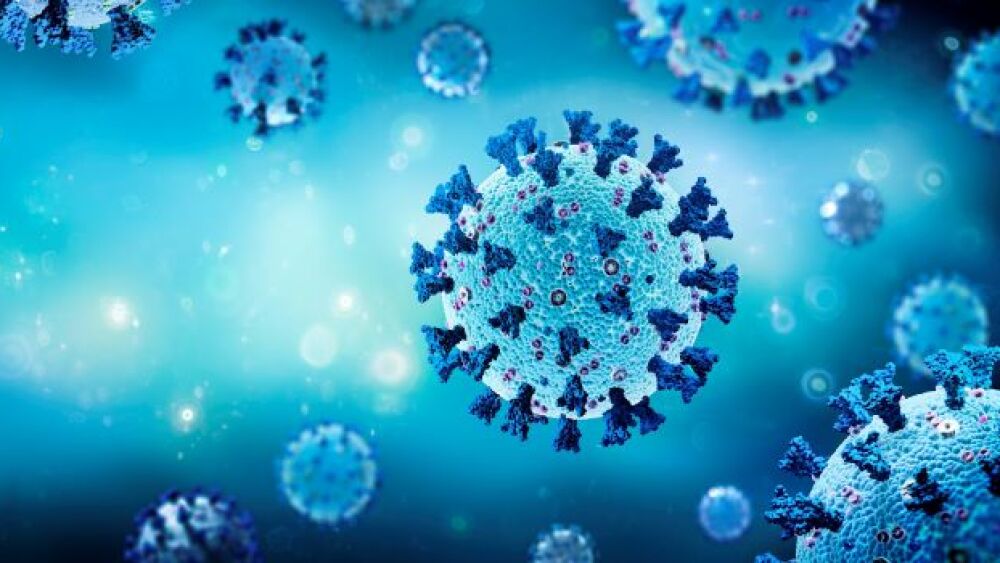As COVID-19 begins yet another surge across the U.S., there is some promising news about the effectiveness of vaccines. Here’s a look at some top COVID-19 stories.
As COVID-19 begins yet another surge across the U.S., there is some promising news about the effectiveness of vaccines. Here’s a look at some of the top COVID-19 stories.
Pfizer-BioNTech and AstraZeneca Vaccines Still Effective Against Delta Variant
A study published in The New England Journal of Medicine found that “only modest differences in vaccine effectiveness were noted with the delta variant as compared with the alpha variant after the receipt of two vaccine doses.” The research looked at the effectiveness of the Pfizer-BioNTech and AstraZeneca vaccines.
The Pfizer-BioNTech virus demonstrated 30.7% effectiveness against the delta variant after a single dose and 88.0% after two doses; it was 48.7% effective against the alpha variant after a single dose and 93.7% effective after two. The AstraZeneca vaccine demonstrated 74.5% effectiveness with two doses against the alpha variant and 67% after two doses with the delta variant.
CDC Predicts COVID-19 Deaths and Hospitalizations to Increase Over Next 4 Weeks
In ensemble forecasts issued by the U.S. Centers for Disease Control and Prevention (CDC) on Wednesday, July 21, the agency projected that COVID-19 deaths and hospitalizations are likely to increase over the next four weeks. In particular, the data suggests that the cases will generally be in younger Americans, particularly in people who are not vaccinated.
Nationally, 48.8% of the population is fully vaccinated. But some states, such as Alabama (33.9%) and Arkansas (35.5%), have significantly lower vaccination rates.
“We do know that in our ICUs, we are seeing younger people intubated who are very sick or who are on the floors and are very sick,” said Jeanne Marrazzo, professor of infectious diseases at the University of Alabama at Birmingham. “That should be a gigantic wake-up call.”
Francis Collins, director of the National Institutes of Health, told CNN, “For those that are not vaccinated, this is becoming a pandemic that has you in its sights. We are in for trouble, as CDC’s projections have laid out, in the coming weeks, especially in those parts of the country where vaccination rates are low, and delta is widespread.”
Vaccine Advisers Meet Today with CDC to Discuss Boosters and J&J Vaccine Safety
The Advisory Committee on Immunization Practices (ACIP) meets with the CDC on Thursday, July 22 from 11 a.m. to 4:30 pm. ET to discuss preliminary data on vaccine boosters and discuss new safety issues with the Johnson & Johnson vaccine. They do not plan on voting today.
The focus on the J&J vaccine is about recent data on cases of Guillain-Barré Syndrome (GBS). There have been approximately 100 preliminary reports of GBS, a rare neurological disorder where the immune system attacks nerve cells, resulting in muscle weakness and sometimes temporary paralysis. The FDA updated the J&J vaccine label last week to list GBS as a rare risk. The committee will discuss whether the benefits of the J&J vaccine still outweigh the risk in light of this recent report.
99.5% of COVID-19 Deaths in the U.S. Now are in Unvaccinated
According to the CDC, 99.5% of deaths from COVID-19 are now among unvaccinated people. Still, so-called breakthrough infections are possible after being vaccinated. The vaccines, however, are very effective at preventing severe illness and death. However, they do not offer 100% protection, and the delta variant is significantly more infectious than other strains and the original Wuhan wildtype strain.
Leana Wen, emergency room physician, visiting professor of health policy and management at the George Washington University Milken Institute School of Public Health, told CNN, “I’ve used the analogy before of a raincoat. The vaccine is an excellent raincoat. If you’re in the occasional drizzle, you’ll probably be fine. But if you’re going from thunderstorm to thunderstorm, at some point, you could get wet.”
Lambda Variant IDed at Texas Hospital
The World Health Organization has designated the lambda variant a “variant of interest,” which essentially means the mutations affect its characteristics and are behind significant community spread or clusters of COVID-19 in multiple countries. The first case in the U.S. has been identified at Houston Methodist in Texas. At this time, it’s unknown if lambda is as contagious or worse than the delta variant, which is responsible for approximately 83% of cases in the U.S.
S. Wesley Long, medical director of diagnostic biology at Houston Methodist, said, “I know there’s great interest in lambda, but I think people really need to be focused on delta. Most importantly, regardless of the variant, our best defense against all the variants is vaccination.”





